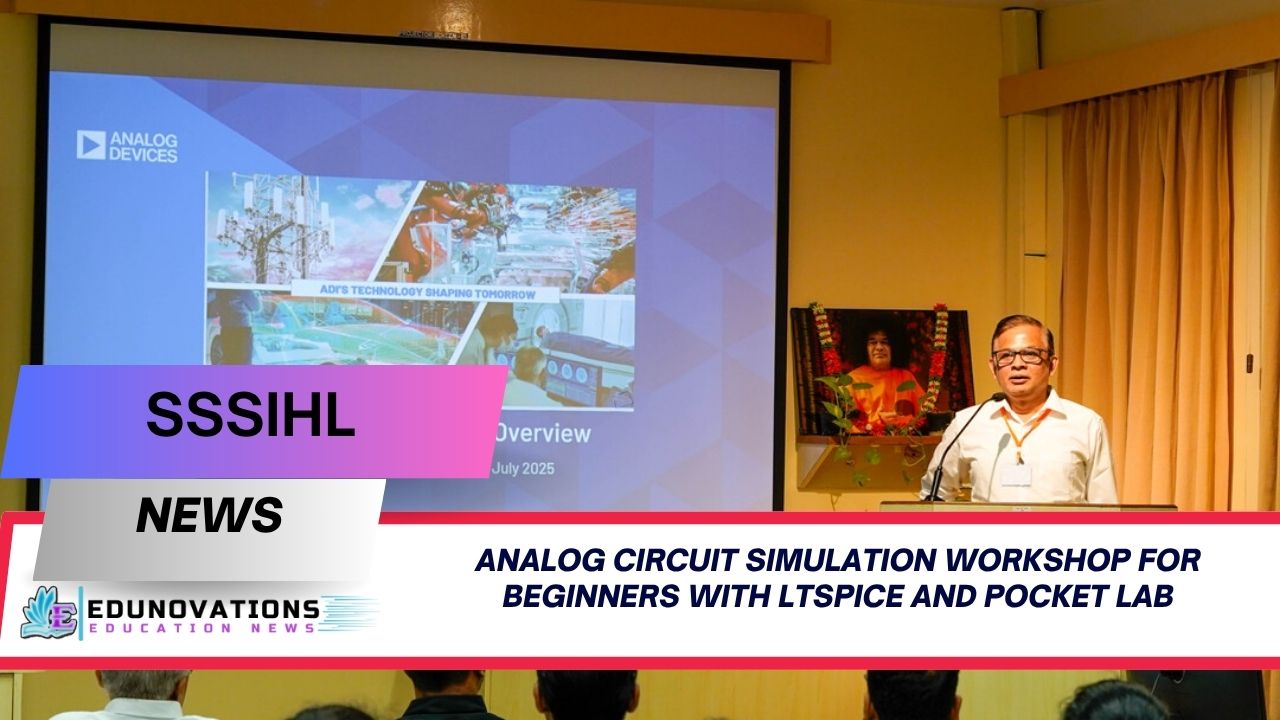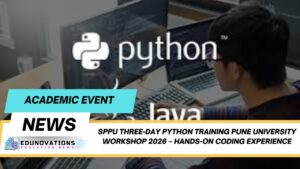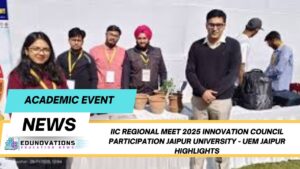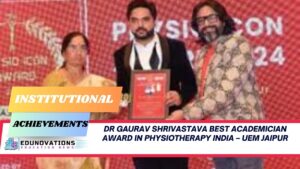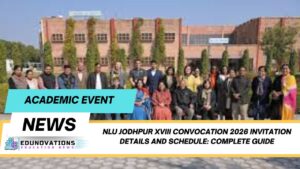Discover how the analog circuit simulation workshop for beginners with LTspice and Pocket Lab at SSSIHL empowers students with hands-on skills in sensor interfacing and embedded hardware.
SSSIHL Hosts National Workshop Blending LTspice and Pocket Lab for Aspiring Engineers
A two-day academic workshop titled “Hands-on Workshop on ADI LTspice & Pocket Lab” was recently hosted at the Prasanthi Nilayam Campus of Sri Sathya Sai Institute of Higher Learning (SSSIHL), drawing enthusiastic participation from over 45 students and faculty members. This transformative event spotlighted an analog circuit simulation workshop for beginners with LTspice and Pocket Lab, positioning itself as a pioneering step in bridging academic theory with practical industry application.
Organized by the Department of Physics, the workshop served as a collaborative initiative between SSSIHL and Analog Devices, Inc. (ADI), with the goal of enhancing practical skills in analog simulation, sensor interfacing, and embedded systems design.
Toppers Use Mind Maps to score more than 95%
NCERT Class 11th Commerce Mind Maps
Add to cartOriginal price was: ₹999.00.₹199.00Current price is: ₹199.00.NCERT Class 12th Chemistry Mind Maps
Add to cartOriginal price was: ₹199.00.₹75.00Current price is: ₹75.00.NCERT Class 12th Commerce Mind Maps
Add to cartOriginal price was: ₹999.00.₹199.00Current price is: ₹199.00.NCERT Class 12th Science Mind Maps
Add to cartOriginal price was: ₹999.00.₹199.00Current price is: ₹199.00.NCERT Mind Maps For Class 10th
Add to cartOriginal price was: ₹999.00.₹199.00Current price is: ₹199.00.
Purchase Today
A Practical Approach to Analog and Embedded Systems Education
While digital technology continues to dominate modern electronics, the foundation of many systems lies in analog circuitry. This workshop provided students with a rare opportunity to delve deep into simulation environments using LTspice and Pocket Lab—tools essential for real-world applications in physics, engineering, and embedded electronics.
The event began with introductory sessions on sensor-based data acquisition using Pocket Lab, followed by more advanced modules like Monte Carlo simulations, analog-to-digital converter (ADC) architecture, and embedded hardware integrations. The underlying focus remained on making analog simulations accessible through a hands-on ADI LTspice and Pocket Lab sensor interfacing course.
Two-Day Learning Agenda Enriched with Real-World Relevance
Day 1 Highlights:
- Fundamentals of LTspice simulation
- Pocket Lab sensor overview and live demonstrations
- Circuit design basics and debugging techniques
- Introduction to Monte Carlo simulation for design variation analysis
Day 2 Highlights:
- Deep dive into ADC systems and sampling theory
- Embedded hardware development sessions
- Integration of Pocket Lab for live data acquisition
- Presentation and review of student circuit prototypes
By focusing on a two-day analog simulation and data acquisition training session, the program ensured that participants not only observed but also actively applied concepts using real-time tools.
Industry and Academic Collaboration in Focus
Analog Devices, Inc., a globally respected semiconductor company, extended not only sponsorship but also technical expertise. The workshop was conducted under the guidance of senior engineers from ADI’s academic outreach division, adding further credibility to the training experience.
A key speaker, Dr. Umesh Mishra, a senior scientist at the National Physics Laboratory and a long-time advocate of hands-on electronics education, commented on the initiative:
“This type of immersive training is the future of STEM education. It equips students with immediate industry-relevant skills while fostering critical thinking,” he stated.
Such comments reflect growing national consensus on practical learning, especially in technical fields like analog electronics.
Student Participation and Project Outcomes
Students from undergraduate and postgraduate programs participated in the workshop. They designed mini-projects using LTspice and Pocket Lab platforms, and presented their work during a dedicated demonstration session.
Topics included:
- Designing a temperature monitoring system using Pocket Lab
- Real-time signal processing simulations in LTspice
- Prototyping an ADC-based light sensor circuit
- Voltage regulator simulations with Monte Carlo analysis
The event concluded with an award ceremony recognizing top-performing project teams. This highlighted the program’s underlying intent: not just to teach, but to inspire future innovation in analog hardware design.
Skill Development Aligned with Industry Demands
This LTspice Monte Carlo simulation and ADC architecture workshop emerged as a timely response to the growing demand for practical circuit design skills in India. A 2024 NASSCOM report reveals that over 60% of core electronics roles require candidates to be proficient in analog simulation and embedded tools, areas rarely covered in depth in conventional curricula.
By offering such embedded hardware and sensor interfacing training with Pocket Lab, SSSIHL positioned itself at the forefront of academic-industry collaboration, directly addressing gaps between classroom learning and professional competence.
Content Integration for Broader Educational Impact
To further support learners interested in deepening their understanding of simulation and embedded systems, the following resources are available:
- Explore NCERT video lessons on electrical circuits: Video Library
- Practice topic-wise MCQs on electronics and physics: MCQ Practice
- Download NCERT physics notes for foundational understanding: Notes Resource
- Browse free NCERT curriculum PDFs and mind maps: Downloads
- Stay updated with current science-related affairs: Current Affairs
- For educators or schools needing custom websites: Mart India Infotech
These resources are aligned with the themes introduced in the workshop and support a broader base of students and teachers across India.
Setting a National Standard in Practical Education
With rapid advancements in sensor technology, circuit prototyping, and embedded intelligence, the importance of practical hands-on ADI LTspice and Pocket Lab sensor interfacing course offerings cannot be overstated. Institutions like SSSIHL are paving the way for future engineers and physicists who not only understand theory but can also build, simulate, and troubleshoot complex systems from scratch.
The workshop’s success demonstrates that experiential education, when combined with industry-grade tools, transforms students into innovators.
Conclusion
This analog circuit simulation workshop for beginners with LTspice and Pocket Lab is more than a learning event—it’s a template for modern education that bridges the divide between textbook knowledge and technical execution. It nurtures not only competency but also creativity, ensuring that participants leave equipped with tools, techniques, and the confidence to design the future.
As India continues to emphasize the development of technical skills across disciplines, programs like this will play a pivotal role in making education more impactful, employable, and aligned with real-world expectations.
FAQs
1. What is the focus of the analog circuit simulation workshop for beginners with LTspice and Pocket Lab?
The focus is on teaching analog circuit simulation, sensor data acquisition, and embedded systems design through practical exercises using LTspice and Pocket Lab.
2. Who conducted the hands-on ADI LTspice and Pocket Lab sensor interfacing course?
It was jointly conducted by faculty from SSSIHL and technical experts from Analog Devices, Inc.
3. What kind of projects were done during the workshop?
Projects included ADC-based light sensors, voltage regulators using Monte Carlo simulations, and real-time signal acquisition using Pocket Lab.
4. Is LTspice suitable for beginner circuit designers?
Yes, LTspice is widely used and beginner-friendly, making it ideal for analog simulation workshops like this.
5. What are some tools used during the two-day analog simulation and data acquisition training session?
The main tools were LTspice for simulation and Pocket Lab for real-time sensor data acquisition.
6. Are embedded hardware and sensor interfacing topics part of this workshop?
Yes, they were central topics and involved hands-on sessions to build and test embedded systems.
7. Can I access learning materials used in the workshop online?
Yes, resources like NCERT notes, videos, and MCQs are available via platforms like Edunovations.
8. What was the significance of Monte Carlo simulation in the training?
Monte Carlo simulation helped students understand performance variations in analog circuits, improving design reliability.
9. Will this training help in job placements in electronics or embedded systems?
Yes, skills learned here align with industry demands, increasing employability in core electronics and embedded roles.
10. Is this workshop format being adopted by other institutions?
While SSSIHL is among the first, similar workshops are being encouraged nationwide due to their hands-on effectiveness.

